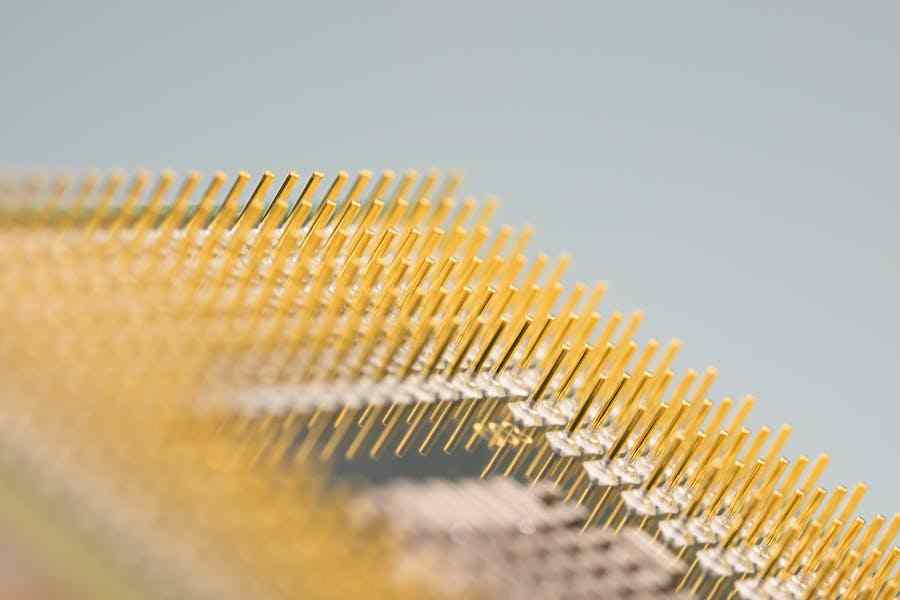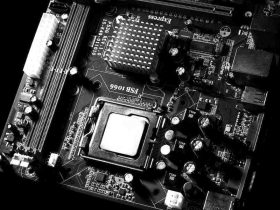In recent years, the computing world has witnessed a seismic shift with the emergence of Apple’s M1 chip, challenging the longstanding dominance of Intel’s i7 processors. This article delves into the heart of this tech showdown, aiming to answer a fundamental question: Is the M1 chip truly superior to the tried-and-tested i7? By examining performance metrics, software compatibility, energy efficiency, and user experiences, we navigate the complex landscape of modern computing to help you make an informed decision in a rapidly evolving digital era.
Is The M1 Chip Better Than i7?
The M1 chip excels in power efficiency and performs admirably in single-core tasks, often outpacing Intel’s i7 processors. However, for certain demanding applications and software compatibility, i7 processors may still have the edge. The choice ultimately depends on your specific needs, but the M1 chip represents a remarkable leap in performance and efficiency, making it a compelling option for many users.
Understanding The M1 Chip
The M1 chip, developed by Apple, is a groundbreaking piece of silicon that has redefined the landscape of computing. At its core, the M1 is an ARM-based system-on-a-chip (SoC), incorporating CPU, GPU, and other components onto a single chip. It boasts a 5nm manufacturing process, which allows for smaller transistors and improved power efficiency.
One of the standout features of the M1 is its ARM architecture, a departure from the x86 architecture typically found in Intel i7 processors. This architecture shift brings exceptional power efficiency and performance gains. The M1 chip is built on a foundation of high-performance CPU cores (four high-efficiency cores and four high-performance cores), coupled with a powerful GPU, offering seamless multitasking and impressive graphics capabilities.
The M1’s unified memory architecture ensures that the CPU and GPU can share data efficiently, resulting in enhanced performance and smoother user experiences. Furthermore, Apple’s dedication to optimizing its software for the M1 chip, particularly with macOS Big Sur and subsequent updates, has led to a more seamless integration of hardware and software, maximizing the chip’s capabilities. As a result, the M1 chip has made waves in the industry, delivering impressive performance and efficiency gains that challenge the traditional notions of computing power.
Exploring Intel i7 Processors
Intel’s i7 processors have long been recognized as powerful workhorses in the computing world. These processors belong to the Intel Core series and are known for their versatility, catering to a wide range of computing needs. With multiple generations and variants, the i7 lineup offers a spectrum of performance levels and features.
i7 processors typically feature a higher number of cores and threads compared to their i5 and i3 counterparts, making them well-suited for tasks that demand significant multitasking and computational power. Hyper-Threading technology further enhances their multitasking capabilities, allowing them to handle more threads simultaneously.
Over the years, Intel has introduced various innovations in its i7 processors, such as improved Turbo Boost technology, increased cache sizes, and advancements in manufacturing processes. These enhancements translate to better performance across various applications, from gaming and content creation to professional workloads.
Benchmark data and real-world tests have consistently demonstrated the prowess of Intel’s i7 processors, especially in scenarios that require heavy processing, such as video editing, 3D rendering, and scientific simulations. However, they tend to consume more power compared to the M1 chip, which may be a consideration for users concerned about energy efficiency and battery life. Overall, Intel i7 processors remain a compelling choice for users seeking high-performance computing solutions.
Performance Comparison The M1 Chip And I7 Processors
The performance comparison between the M1 chip and Intel i7 processors is a pivotal aspect of understanding their capabilities. Let’s delve into various performance metrics to assess their strengths and weaknesses:
- Single-Core Performance: The M1 chip’s single-core performance is exceptional, thanks to its custom-designed high-performance cores. It often outperforms i7 processors in single-threaded tasks, providing snappier responsiveness and faster application launches.
- Multi-Core Performance: Intel i7 processors, especially those with higher core counts, excel in multi-threaded applications and tasks. They can handle complex workloads like video editing, 3D rendering, and scientific simulations efficiently due to their multiple cores and threads.
- Power Efficiency: The M1 chip’s ARM architecture and 5nm manufacturing process result in remarkable power efficiency. It delivers impressive performance while consuming less power compared to many i7 processors. This advantage is particularly significant in laptops, leading to longer battery life.
- Graphics Performance: The M1 chip integrates a powerful GPU that offers excellent graphics performance. It’s capable of handling tasks like video editing, gaming, and creative applications with ease. While some i7 processors come with integrated graphics, others rely on discrete graphics cards for similar performance, which can increase power consumption and cost.
- Real-World Usage: In real-world usage scenarios, the M1 chip often provides a smoother and more energy-efficient experience for everyday tasks, web browsing, and light productivity. i7 processors shine in heavy-duty tasks but may consume more power.
- Thermal Performance and Cooling: Intel i7 processors, especially in high-performance laptops and desktops, may require robust cooling solutions to manage heat. The M1 chip’s power efficiency contributes to better thermal management in thinner and fanless devices.
User Experience And Considerations
User experience and considerations play a pivotal role in determining whether the M1 chip or Intel i7 processors are the right fit for your computing needs. Let’s explore some important aspects to consider:
- Operating System and Ecosystem: The choice between the M1 chip and Intel i7 may also hinge on your preference for macOS or Windows. M1 chips are exclusively found in Apple devices, while i7 processors are commonly used in Windows PCs. Consider your familiarity with and preference for the operating system and software ecosystem when making a decision.
- Software Compatibility: The M1 chip’s ARM architecture may require some software to run in emulation mode, potentially affecting performance. Intel i7 processors, being x86-based, have broader compatibility with existing Windows software. Check if your essential applications are natively supported on the platform you choose.
- Developer Support: Apple has made significant efforts to optimize its software for the M1 chip, but not all third-party developers have fully transitioned. On the other hand, Intel’s i7 processors have long-standing developer support. Consider whether your preferred software tools and applications are optimized for your chosen platform.
- User Feedback and Reviews: Reading user reviews and feedback can provide valuable insights into real-world experiences with both the M1 chip and i7 processors. Look for user testimonials and expert reviews to gain a better understanding of how each performs in the tasks that matter most to you.
- Personal Preferences: Your personal preferences and habits play a significant role. Consider your workflow, the types of tasks you perform regularly, and your comfort level with the operating system and hardware design. Some users may have a strong preference for macOS or Windows, which can influence their choice.
- Future-Proofing: Think about your long-term needs. While the M1 chip represents a leap in performance and efficiency, Intel i7 processors continue to evolve. Consider how future software requirements and technological advancements might impact your decision.
- Use Cases and Target Audience: Tailor your choice to your specific use cases. If you primarily engage in content creation, the M1 chip’s efficiency and GPU performance may be attractive. If you’re a gamer or use specialized software, an i7 processor with a dedicated GPU might be more suitable.
Conclusion
In conclusion, the comparison between the M1 chip and Intel i7 processors reveals a dynamic landscape in the world of computing. The M1 excels in power efficiency and single-core performance, making it an excellent choice for everyday tasks and mobile computing. Intel i7 processors shine in multi-core performance, catering to power users and professionals. Your choice ultimately hinges on your specific needs, software preferences, and long-term considerations. As technology continues to advance, both options represent formidable contenders in the ever-evolving world of processors, offering a diverse range of capabilities to meet diverse computing demands.
FAQ’s
Is The M1 Chip Faster Than Intel I7 Processors?
In single-core tasks and power efficiency, the M1 chip often outperforms i7 processors. However, for multi-core performance, i7 processors can still have an edge in certain scenarios.
Are All Software Applications Compatible With The M1 Chip?
Not all software is natively optimized for the M1 chip’s ARM architecture. Some may run in emulation mode, which can impact performance. Check compatibility for specific applications.
Which Is Better For Gaming, M1 Or I7?
Intel i7 processors with dedicated GPUs are generally better for gaming due to their broader compatibility with Windows gaming libraries. However, the M1 chip offers decent gaming performance for Mac users.
Is The M1 Chip More Energy-Efficient Than Intel I7 Processors?
Yes, the M1 chip is known for its exceptional energy efficiency, leading to longer battery life in laptops compared to many i7-powered devices.
Can I Upgrade My M1 Mac Or I7 Pc In The Future?
Upgrading options can vary. Most M1 Macs have limited upgradeability, while some i7 PCs offer more flexibility for component upgrades, such as RAM and storage. Consider your long-term needs when making a choice.
















